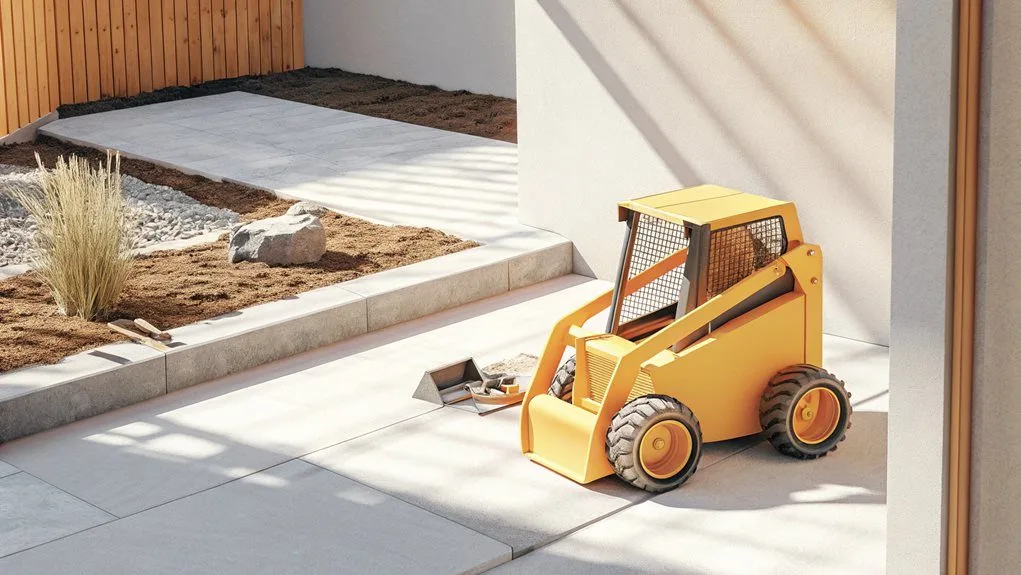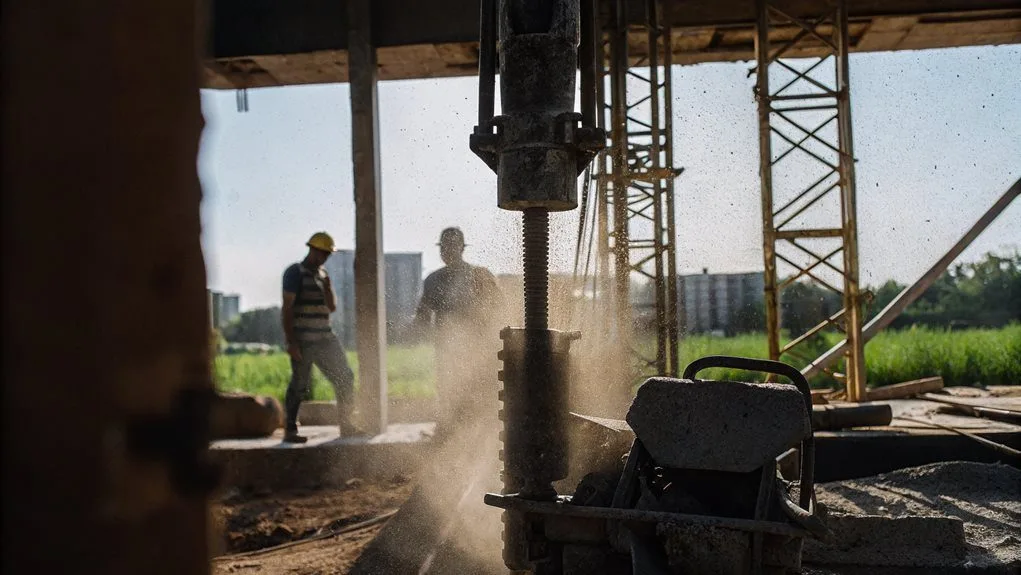In the world of industrial operations, air compressors are the unsung heroes, playing a pivotal role in everything from manufacturing to construction. If you're in the process of considering renting an industrial air compressor, you're likely looking for ways to maximize efficiency and productivity without the commitment of a purchase. The challenges of selecting the right compressor, understanding the terms of the rental, and ensuring it meets your operational needs can seem daunting.
With an intricate understanding of these needs and the complexities involved, this guide is designed to navigate you through the maze of options and considerations.
Drawing from extensive experience in the field, we aim to demystify the process of renting industrial air compressors. Whether you're dealing with fluctuating project demands, budget constraints, or simply need a temporary solution, our insights will cater directly to these concerns. By establishing a connection rooted in empathy and expertise, we're here to ensure you feel confident in making an informed decision.
As you continue reading, you'll find that all your queries and concerns regarding renting industrial air compressors are addressed comprehensively, encouraging you to move forward with clarity and confidence.
Key Takeaways
- Contact a reputable distributor with specific compressor needs
- Finalize rental details and arrange for delivery
- Implement effective maintenance practices for optimal performance
- Understand cost benefits of renting vs. buying for informed decisions
Benefits of Industrial Air Compressor Rental
Renting industrial air compressors for business operations presents a cost-efficient alternative that enables companies to access high-quality equipment without the financial burden of ownership. Industrial air compressor rental offers numerous benefits, including a compressed air solution that can lower maintenance costs and eliminate the need for substantial initial capital investment in purchasing new machines. The affordability of rental services compared to buying new equipment allows businesses to allocate resources more effectively. By opting for industrial air compressor rental, companies can concentrate on enhancing product output, mitigating downtime risks, and improving operational efficiency.
Moreover, rental services provide the advantage of quick repairs and replacements, ensuring minimal project delays and maximizing productivity. This flexibility makes industrial air compressor rental a convenient and cost-effective solution, particularly suitable for temporary or peak production needs. By leveraging rental services, businesses can streamline their operations, optimize resource allocation, and maintain a competitive edge in the market.
Types of Industrial Compressors Available
Among the range of industrial compressors available for rental, rotary screw air compressors stand out as a popular choice due to their efficiency and reliability in various industrial applications. These compressors are well-suited for continuous operation and are known for their high airflow capacity and energy efficiency. In addition to screw compressors, portable air compressors provide flexibility and mobility, making them ideal for on-site applications where portability is crucial.
Types of Industrial Compressors Available:
- Rotary Screw Air Compressors: Known for their efficiency and reliability in continuous industrial operations.
- Portable Diesel Compressors: Models like the Sullair 1300XHH/1525XHDL and Sullivan D-Series offer versatility in various industrial settings.
- Different Models and Sizes: Industrial compressors come in various sizes, such as the Sullivan D750 to D1800 series, tailored to specific industrial needs.
Understanding the specific requirements of your industrial application is crucial when selecting the right type of industrial compressor for rental. Detailed product specifications play a vital role in determining the most suitable compressor based on factors like power demand, mobility requirements, and the nature of the application.
How to Rent an Air Compressor
To rent an air compressor, start by contacting a reputable compressor distributor to discuss your rental needs. Provide specific details about your facility's requirements, including the type, size, pressure, and CFM specifications needed for the compressor.
Once the rental details are finalized, arrange for the distributor to deliver and install the equipment at your location.
Rental Process Overview
When seeking to procure an industrial air compressor through rental services, initiating contact with a reputable compressor distributor is paramount for acquiring the appropriate equipment for your facility's compressed air requirements. To streamline the rental process, follow these key steps:
- Inquire About Rental Options: Contact a trusted compressor distributor to discuss available air compressors for rent.
- Share Specific Application Details: Provide information on your facility's compressed air needs, specifying the required compressor type (e.g., oil-injected, oil-free, portable), size, PSI, and CFM requirements.
- Arrange Delivery and Installation: Typically, the distributor offers equipment delivery and installation services for your convenience.
For a seamless rental experience tailored to your compressed air demands, reach out to a knowledgeable compressor distributor today.
Equipment Pickup Details
To ensure a smooth rental experience for acquiring an industrial air compressor, understanding the equipment pickup details is crucial. This process starts with confirming the pickup location, date, and time provided by the rental company. It is essential to verify the required identification and documentation, such as a valid ID and rental agreement, needed for equipment pickup.
Prior to accepting the rented air compressor, carefully inspect its condition to avoid disputes in the future. Familiarize yourself with the return policy and any penalties associated with late returns to manage operating costs effectively.
Additionally, maintaining air quality by returning the compressor in the same condition is vital to prevent damage fees and ensure a seamless rental experience.
Factors to Consider Before Renting
Before committing to renting an industrial air compressor, it is essential to thoroughly evaluate the specific compressed air requirements of your facility's application. When considering renting an air compressor, there are several key factors to keep in mind:
- Compressed Air Requirements: Understanding the specific needs of your application, including the required pressure (PSI) and volume (CFM) of compressed air, is crucial for selecting the right compressor.
- Rental Duration: Determine whether you need the compressor for a short-term project or a long-term rental. This will help you plan and budget effectively for the rental period.
- Compressor Size and Features: Consider the size of the compressor that will meet your air demands and any special features required, such as oil-free operation or portability. Choosing the right compressor size and type will ensure optimal performance for your application.
Maintenance Tips for Rented Compressors
Considering the critical importance of maintaining optimal performance and longevity for rented industrial air compressors, implementing effective maintenance practices is paramount in ensuring the smooth operation of these essential equipment pieces. To maintain quality air and high pressure output, it is crucial to follow a stringent maintenance routine. Regularly checking and replacing air filters is essential to prevent contamination and ensure the delivery of clean air. Monitoring oil levels and changing oil as recommended helps in smooth operation and prevents damage to the compressor. Additionally, inspecting belts, hoses, and fittings for wear and tear, and replacing damaged components promptly, is vital to avoid breakdowns. Keeping the compressor clean and free of debris prevents overheating and maintains efficient performance. Adhering to the manufacturer's maintenance schedule and guidelines is key to prolonging the compressor's lifespan and avoiding unnecessary repairs.
| Maintenance Tips for Rented Compressors | |
|---|---|
| Air Filters | Regularly check and replace to maintain quality air. |
| Oil Levels | Monitor and change as recommended for high pressure output. |
| Belts, Hoses, Fittings | Inspect for wear and tear, replace damaged parts promptly. |
| Cleanliness | Keep compressor free of debris to prevent overheating. |
| Manufacturer's Guidelines | Follow maintenance schedule to prolong lifespan and prevent breakdowns. |
Cost Comparison: Renting Vs. Buying
When comparing the costs of renting industrial air compressors versus buying them, it is crucial to consider the financial implications of each option.
Renting provides a cost-effective solution for short-term needs, avoiding upfront expenses and long-term ownership costs associated with buying.
Understanding the financial benefits of renting and the potential savings over time can help businesses make informed decisions regarding their industrial air compressor needs.
Renting Cost Benefits
Renting industrial air compressors can offer substantial cost benefits compared to purchasing, particularly when evaluating the overall financial investment involved. Here are the key reasons why renting can be more cost-effective:
- Lower Initial Investment: Rental costs are typically lower than purchasing costs, saving on upfront expenses.
- Flexibility: Renting allows for scalability based on project needs, eliminating the requirement for long-term commitments.
- Inclusive Maintenance: Operating expenses such as maintenance, repairs, and storage are often included in rental packages, reducing overall costs.
These factors make renting industrial air compressors a financially sound choice, especially for short-term or temporary requirements.
Long-Term Ownership Expenses
To fully comprehend the financial implications of owning versus renting industrial air compressors, a comprehensive analysis of long-term ownership expenses is imperative.
Long-term ownership expenses for industrial air compressors encompass maintenance costs, repairs, and depreciation, significantly impacting the total cost of ownership.
Renting industrial air compressors can offer cost savings by eliminating upfront purchasing expenses and providing flexibility to adapt to changing needs without the commitment of ownership.
Operational costs, such as energy consumption and repairs, play a crucial role in the cost comparison between renting and buying.
Renting Process Step-by-Step
How can one ensure a seamless rental experience when acquiring an industrial air compressor for their facility? To navigate the renting process effectively, follow these steps:
- Contact a Trusted Distributor: Reach out to a reputable compressor distributor who offers a wide range of industrial air compressors for rent. Provide detailed information about your facility's application and compressed air needs to ensure the right fit.
- Specify Compressor Requirements: Clearly outline the type of compressor needed (e.g., oil-injected, oil-free, portable) based on your operations. Specify the size, PSI (pressure), and CFM (flow rate) requirements for accurate selection.
- Agree on Delivery and Setup: Once all details are discussed and agreed upon, the distributor will handle equipment delivery, installation, and any necessary setup. This ensures a smooth transition to using the rented industrial air compressor, especially in situations requiring emergency compressed air.
Safety Guidelines for Compressor Rental
Upon acquiring an industrial air compressor for rental, strict adherence to safety guidelines is paramount to ensuring operational integrity and mitigating potential hazards in the facility.
Safety measures should include the installation of safety devices such as check valves or OSHA valves at air supply sources, as required by OSHA regulation 1926.302. It is crucial to use proper hoses to prevent accidents like hose whip and ensure efficient air flow during compressor operation. Valves should be sized according to the CFM of connected devices to maintain safety and prevent hazards.
Implementing whip checks or chokers on hose connections is essential to secure them and prevent unintended disconnections, further enhancing safety. Regular monitoring and management of condensate at industrial sites are also crucial to prevent environmental contamination and ensure safe disposal practices.
Prioritizing safety in compressor rental operations is vital for the well-being of personnel and the overall functioning of the facility.
Unleash Your Project Potential
Bendet Plant & Tool Hire makes every job easy with top-notch Plant Hire, Tool Hire, Earthmoving, Forestry Services, and Breakdown & Towing. No need to stress—our team has the right tool for every task. Need reliable tyres for your fleet? Check out Africa Tyres for superb quality and service.






